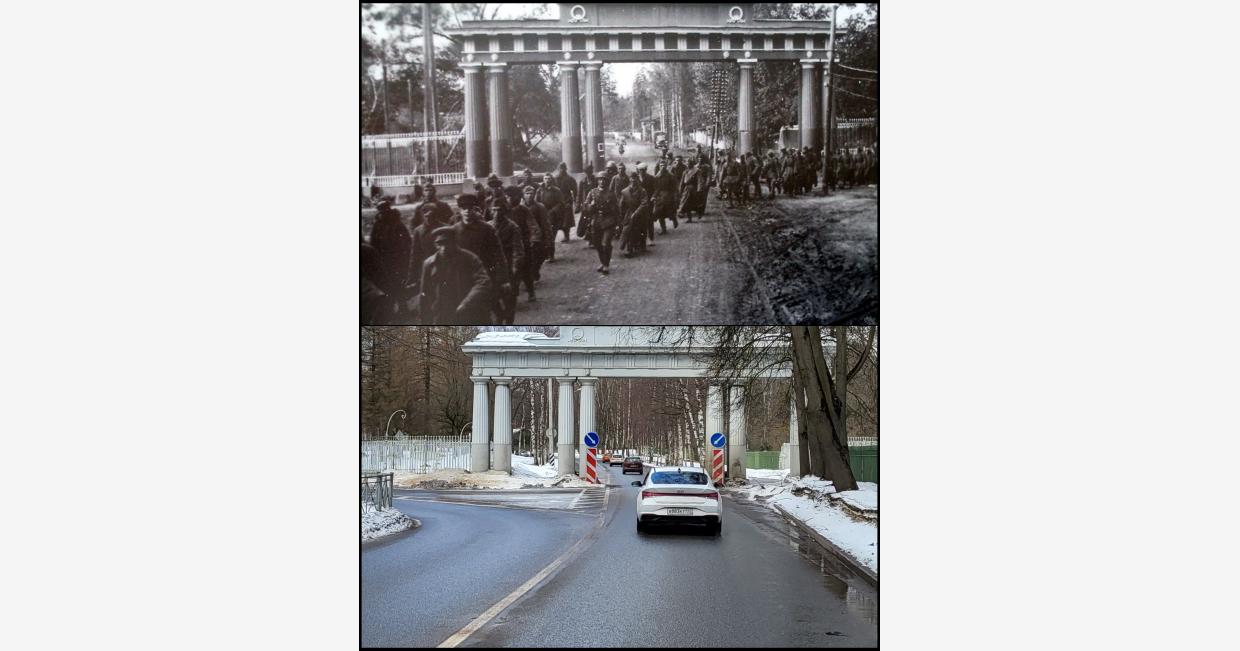Revolution street, Slutsk. September 1941 / Sadovaya street, Pavlovsk. February 2022
Column of Soviet POWs marching next to Nikolayevsky Gate.
From "Combat and Genocide on the Eastern Front: The German Infantry's War, 1941–1944 (Cambridge Military Histories)" by Jeff Rutherford:
"The 121st ID [which occupied Pavlovsk in September 1941 - Alexander Shmidke] also established three separate prisoner-of-war camps in the city and their conditions reflected those of other German POW camps in late 1941. These prisoners were a mix of Red Army soldiers from the Leningrad front and civilians picked up from the smaller towns and villages outside Pavlovsk. Numerous soldiers in these camps were wounded but received no medical care. Similarly to their civilian counterparts, the captive soldiers were subjected to “daily beatings” as well as being forced to work long hours on extremely arduous tasks. Provided with a meager daily diet of twenty-eight grams of ersatz bread and a revolting gruel, these prisoners faced an extremely high mortality rate with over 1,000 dying during the course of the war. After three months of decimating a readily available labor force, the division quartermaster finally approved an increase in rations in the hope that this would lead to a corresponding rise in labor productivity. The issue of Soviet prisoners’ survival existed outside the moral universe of division command, reduced to a mere question of pragmatism...
The Wehrmacht’s institutional response to the growing starvation was encapsulated in Reichenau’s infamous order [Severity Order or Das Verhalten der Truppe im Ostraum - A.S.] of 10 October 1941. Reichenau neatly summed up the ideological motivations behind the war, and Hitler, finding the order to mirror his own thinking, had it distributed to other Ostheer units. The 121st ID received the directive on 6 November. Addressing the food situation in the occupied territories of the Soviet Union, Reichenau stated that:
"the feeding from troop kitchens of native inhabitants and prisoners of war who are not in the service of the Wehrmacht is the same misconstrued humanity as is the giving away of cigarettes and bread. What the Heimat has spared, what the command has brought to the front despite great difficulties, should not be given by the troops to the enemy, even when it comes from war booty. This is a necessary part of our supply"
